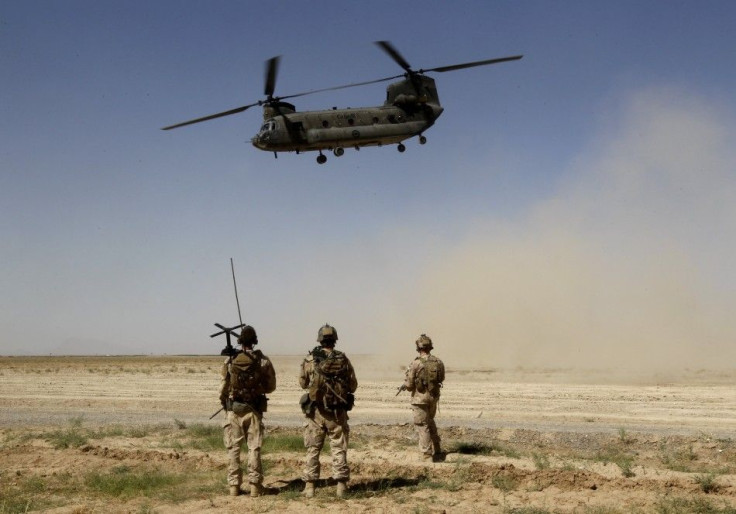Navy SEALs Killed: Helicopter Crash Was Taliban Trap, Afghan Official Says

The shooting down of a U.S. helicopter, which led to the deaths of 30 American troops, 22 of which were party of the Navy SEALs commando unit, Team 6, stemmed from an elaborate trap by the Taliban, an Afghan official said Monday.
In what proved to be the biggest single loss of life for American and NATO forces since the U.S.-led invasion of Afghanistan, the killed service members were on a rescue mission to help a U.S. Army Ranger unit that was under fire from insurgents.
According to a senior Afghan official, who spoke to the Agence France-Presse on condition of anonymity, said that Taliban commander Qari Tahir lured U.S. forces to the scene by tipping them off about a Taliban meeting taking place there.
He also said four Pakistanis helped Tahir carry out the strike.
"Now it's confirmed that the helicopter was shot down and it was a trap that was set by a Taliban commander," the official said, citing intelligence gathered from the area. "The Taliban knew which route the helicopter would take.
"That's also the only route, so they took position on either side of the valley on mountains and as the helicopter approached, they attacked it with rockets and other modern weapons," he said. "It was brought down by multiple shots."
On Monday, President Barack Obama said the United States will succeed in Afghanistan, despite their deaths.
"We will press on, and we will succeed," Obama said Monday as the troops' remains were being prepared to be flown to Dover Air Force Base in Delaware Tuesday. "Our responsibility is to ensure that their legacy is an America that reflects the courage, commitment and sense of common purpose."
U.S. Defense Secretary Leon Panetta said Monday the deaths were a sobering affirmation of the U.S resolve and commitment to complete the mission still at hand.
When questioned about whether the attack was linked to a trap laid by a Taliban commander, the militia's spokesman Zabiullah Mujahid said, "We have used various tactics over the past 10 years. This could also be a tactic."
But Colonel Dave Lapan, a Pentagon spokesman, said he would "caution people against reading too much into a single combat incident."
"At this point, it's a one-off incident," he told reporters, adding it did not amount to "any kind of watershed or trend."
"We still have the Taliban on the run. We've reversed the momentum that they had, but they're still going to inflict causalities," Lapan said.
The NATO-led International Security Assistance Force (ISAF) said the cause of the crash was still being investigated but issued a statement giving details of the moments before the fatal incident.
© Copyright IBTimes 2025. All rights reserved.





















